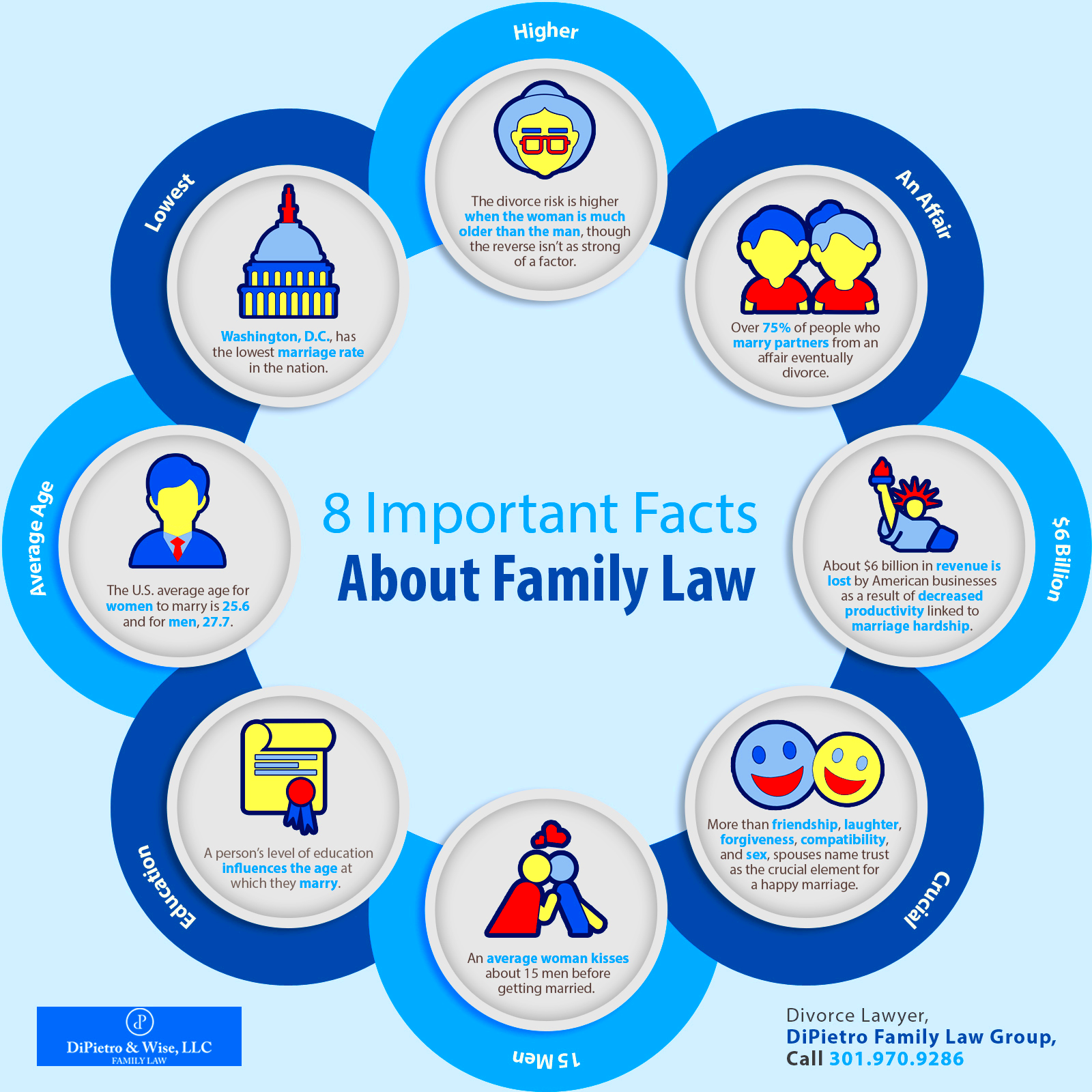Key Facts About Utah Family Law
Utah family law covers a range of legal issues related to family matters. It includes divorce, child custody, adoption, and more. Understanding these laws is essential for anyone facing family-related legal challenges in Utah. The laws are designed to protect the rights and well-being of family members, especially children. In this article, we will explore key aspects of Utah family law, helping you navigate this often complex area of law.
Understanding Divorce Laws in Utah

Divorce laws in Utah are unique and differ from those in other states. Here are some key points to consider:
- No-Fault Divorce: Utah allows no-fault divorce, meaning you don’t need to prove wrongdoing to get divorced. Simply stating that the marriage is irretrievably broken is enough.
- Residency Requirement: To file for divorce in Utah, either you or your spouse must have lived in the state for at least three months.
- Waiting Period: After filing for divorce, there is a mandatory 90-day waiting period before the divorce can be finalized.
- Filing Process: You will need to file a petition for divorce and serve your spouse with divorce papers. It’s advisable to have legal assistance during this process.
Divorce can be emotionally challenging, so it’s essential to seek support from family, friends, or professionals. Understanding your rights and options can make the process smoother.
Child Custody and Support in Utah

When it comes to child custody and support, Utah prioritizes the best interests of the child. Here are the main aspects:
- Types of Custody: There are two types of custody in Utah:
- Physical Custody: This determines where the child will live.
- Legal Custody: This grants parents the right to make important decisions about the child’s upbringing.
- Joint Custody: Utah encourages joint custody arrangements, allowing both parents to share parenting responsibilities.
- Child Support Guidelines: Child support calculations are based on the income of both parents and the needs of the child. Utah has a formula to help determine the appropriate amount.
- Modifying Support: If circumstances change, either parent can request a modification of child support or custody agreements.
It’s crucial to maintain open communication with your co-parent and seek legal advice to ensure your child’s needs are met.
Property Division During Divorce in Utah
When a couple decides to divorce in Utah, one of the most critical issues they face is property division. Understanding how property is divided can help ease the process. In Utah, the law follows the principle of equitable distribution.
- Equitable Distribution: This means that marital property is divided fairly, but not necessarily equally. The court considers various factors, such as:
- Length of the marriage
- Financial contributions of each spouse
- Non-financial contributions, like homemaking
- Future needs of each spouse
- Any previous agreements, like prenuptial agreements
- Marital vs. Separate Property: In Utah, it’s essential to distinguish between marital property (acquired during the marriage) and separate property (owned before the marriage or inherited). Only marital property is subject to division.
- Valuing Assets: Before division, all assets must be valued. This includes real estate, vehicles, bank accounts, and retirement plans. Sometimes, professional appraisers are needed to ensure fair valuation.
- Negotiation and Settlement: Couples can negotiate how to divide property outside of court, which can save time and reduce stress. If an agreement can’t be reached, the court will make the decision.
Understanding property division is vital for both parties to ensure a fair outcome. Consulting with a family law attorney can provide guidance tailored to your situation.
Legal Separation vs Divorce in Utah
Many people confuse legal separation with divorce, but they are quite different. Understanding these differences is crucial for those considering either option in Utah.
- Definition: Legal separation allows couples to live apart while remaining legally married. Divorce, on the other hand, ends the marriage legally.
- Reasons for Legal Separation: Some couples choose legal separation for various reasons, such as:
- Religious beliefs against divorce
- Time to consider whether to reconcile
- Benefits like health insurance coverage
- Legal Process: The process for legal separation is similar to divorce. You will need to file a petition and create a separation agreement outlining custody, support, and property division.
- Rights and Obligations: In both legal separation and divorce, issues like child custody, support, and property division must be addressed. However, in legal separation, couples can still file joint taxes and make decisions together.
- Reconciliation or Divorce: Couples can choose to reconcile after legal separation or proceed with divorce if they decide to end the marriage permanently.
Deciding between legal separation and divorce can be complex. It’s a good idea to seek legal advice to understand which option is best for your situation.
Adoption Process in Utah
Adopting a child is a rewarding journey, and Utah has specific laws governing the adoption process. Here’s a step-by-step guide to understanding how it works:
- Types of Adoption: There are several types of adoption in Utah, including:
- Agency Adoption: Involves placing a child through a licensed adoption agency.
- Independent Adoption: Directly involves the birth parents and adoptive parents without an agency.
- Relative Adoption: Involves adopting a family member’s child.
- Home Study: A home study is required for all adoptive parents. This involves interviews, background checks, and home visits to ensure a safe environment for the child.
- Consent Requirements: Birth parents must provide legal consent for the adoption. This consent can vary based on the circumstances, such as the child’s age and whether the birth parents are married.
- Finalization: Once all requirements are met, the adoption is finalized in court. This usually involves a hearing where a judge will grant the adoption.
- Post-Adoption Support: After the adoption is finalized, support services may be available for families to help with the transition.
The adoption process can be complex, but the joy of welcoming a child into your family is well worth the effort. Working with an experienced adoption attorney can simplify the process and ensure all legal requirements are met.
Domestic Violence and Restraining Orders in Utah
Domestic violence is a serious issue that affects many families in Utah. It’s crucial to understand your rights and the legal protections available to you. Domestic violence can take many forms, including physical, emotional, or financial abuse. If you or someone you know is facing such a situation, it’s important to know how to seek help.
- Definition of Domestic Violence: In Utah, domestic violence is defined as any act of violence against a partner or family member. This can include:
- Physical harm
- Threats of harm
- Emotional abuse or intimidation
- Stalking
- Filing for a Restraining Order: If you are a victim of domestic violence, you can file for a restraining order. This legal document can help protect you by prohibiting the abuser from contacting or coming near you. Here’s how to do it:
- Visit the local courthouse and fill out the necessary forms.
- Provide evidence or documentation of the abuse, if available.
- Submit the forms to the court and request a hearing.
- Types of Restraining Orders: There are different types of restraining orders in Utah:
- Temporary Restraining Order: Issued quickly to provide immediate protection.
- Permanent Restraining Order: Granted after a court hearing, lasting longer.
- Support Resources: If you are experiencing domestic violence, there are resources available to help, including:
- Local shelters and crisis centers
- Legal aid organizations
- Hotlines for immediate support
Remember, you are not alone. Seeking help is a brave step towards safety and recovery.
Frequently Asked Questions About Utah Family Law
When navigating family law issues in Utah, you may have several questions. Here are some common queries and their answers to help clarify the legal landscape:
- What is the difference between legal separation and divorce?Legal separation allows you to live apart while remaining married, while divorce legally ends the marriage.
- How is child custody determined?The court considers the child’s best interests, including the relationship with each parent, the child’s needs, and any history of abuse.
- Can I modify child support after it’s set?Yes, if there are significant changes in circumstances, either parent can request a modification of the support order.
- What are my rights in property division during divorce?You have the right to an equitable division of marital property, which may not necessarily mean a 50/50 split.
- How long does the divorce process take?The time varies based on the complexity of the case, but there is typically a 90-day waiting period in Utah.
It’s always a good idea to consult with a family law attorney for personalized guidance based on your situation. They can help address any specific questions you may have.
Conclusion on Utah Family Law
Understanding Utah family law is essential for anyone facing family-related legal issues. Whether you are dealing with divorce, child custody, adoption, or domestic violence, knowing your rights and options can empower you to make informed decisions. Each situation is unique, so seeking professional legal advice tailored to your circumstances is always advisable.
Family law can be complex, but you don’t have to navigate it alone. Many resources and support systems are available to assist you through the process. Remember that the goal of family law is to protect the welfare of all family members, particularly children. By being informed and proactive, you can work towards a resolution that ensures the best outcomes for you and your loved ones.


